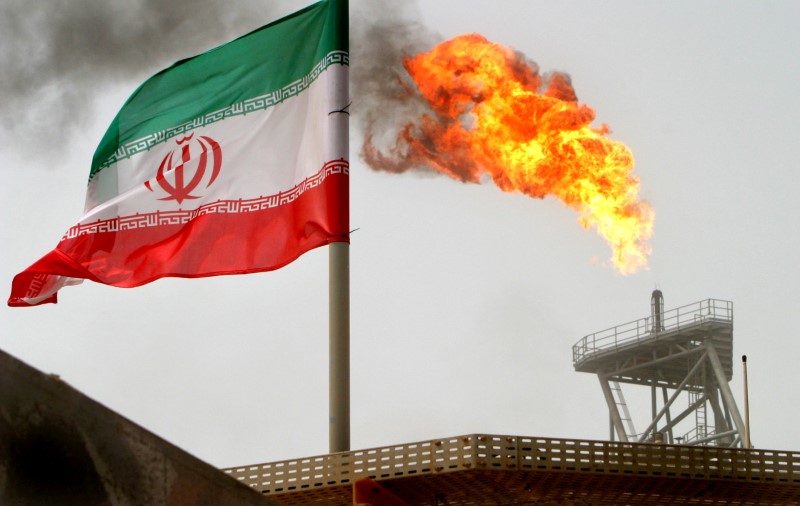By Lesley Wroughton and Daphne Psaledakis
WASHINGTON (Reuters) - The United States aims to reduce Tehran's oil revenue to zero in an effort to force the Iranian leadership to change its behaviour in the region and believes there is enough spare global oil capacity to make up for lower supply from Iran, a senior U.S. State Department policy adviser said on Monday.
Brian Hook, the State Department's director of policy planning, told a news conference that the U.S. goal was to get as many countries as possible down to zero Iranian oil imports.
The United States would work with allies on a case-by-case basis but Washington did not plan to offer exemptions from sanctions, Hook added.
"Our goal is to increase pressure on the Iranian regime by reducing to zero its revenue on crude oil sales," Hook said. "We are working to minimize disruptions to the global market but we are confident there is sufficient global spare oil capacity."
Saudi Arabia's King Salman promised U.S. President Donald Trump at the weekend that he would raise oil production if needed and the country has 2 million barrels per day of spare capacity to boost output, the White House said.
In a tweet on Saturday, Trump said the extra Saudi oil would help offset a decline in supply from Iran, after the United States pulled out of the Iran nuclear deal in May and moved to reimpose oil sanctions.
Trump was not specific on whether the additional 2 million barrels was a per-day figure - but worldwide daily demand is nearing 100 million bpd.
The Trump administration is pushing countries to cut all imports of Iranian oil from November when the United States re-imposes sanctions against Tehran, after Trump withdrew from the 2015 nuclear deal agreed between Iran and six major powers, against the advice of allies in Europe and elsewhere.
U.S. officials are pressing allies in Europe, Asia and the Middle East to adhere to the sanctions once they are re-imposed, with the aim of pressuring Iran into negotiating a new agreement.
Hook said he planned to meet with European allies Britain, France and Germany at the end of the week to discuss Iran. He also said he and senior Treasury Department would visit Gulf states "in the coming days."
Some 50 international companies had announced their intention to leave the Iranian market, particularly in energy and financial sectors, as the United States moved to reimpose the sanctions against Iran, Hook said.
"We have been clear with countries and companies around the world that we are bringing severe economic pressure on Iran until the regime changes its destabilizing policies," Hook said.

Oil prices fell on Monday, reversing course from last week as supplies from Saudi Arabia and Russia rose while economic growth stumbled in Asia amid escalating trade disputes with the United States.